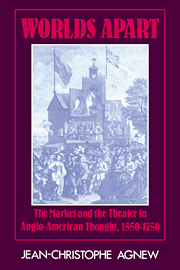Epilogue: Confidence and culture
Published online by Cambridge University Press: 16 November 2009
Summary
When the shades of night gather around our floating hotel, we all flock to the spacious public saloon, some eighty feet long, tastily furnished, well lighted with blazing fires, &c., &c. Newspapers, books and religious tracts are scattered round by some friendly passengers, for the mutual benefit of the whole. Some read, some talk, some sit in perfect silence, apparently buried deep in thought, while others amuse themselves with a game of chance.
Philo Tower, Slavery Unmasked, Being a Truthful Narrative of a Three Years' Residence and Journeying in Eleven Southern States (1856)Stools, settees, sofas, divans, ottomans; occupying them are clusters of men, old and young, wise and simple; in their hands are cards spotted with diamonds, spades, clubs, hearts; the favorite games are whist, cribbage, and brag. Lounging in arm-chairs or sauntering among the marble-topped tables, amused with the scene, are the comparatively few, who, instead of having their hands in the games, for the most part keep their hands in their pockets. These may be the philosophers.
Herman Melville, The Confidence-Man: His Masquerade (1857)In 1857, exactly a century after John Witherspoon's indignant attack on the perils of the theater, Herman Melville published what was to be the most theatrical of his novels – also his last. At the very height of Victorian ideological complacency, a moment for which Witherspoon and other Common Sense writers had long prepared, Melville threw out his final, desperate challenge to the smug assurances of his age. The result was a novel more deeply and bleakly skeptical than anything he had theretofore written.
- Type
- Chapter
- Information
- Worlds ApartThe Market and the Theater in Anglo-American Thought, 1550–1750, pp. 195 - 203Publisher: Cambridge University PressPrint publication year: 1986



